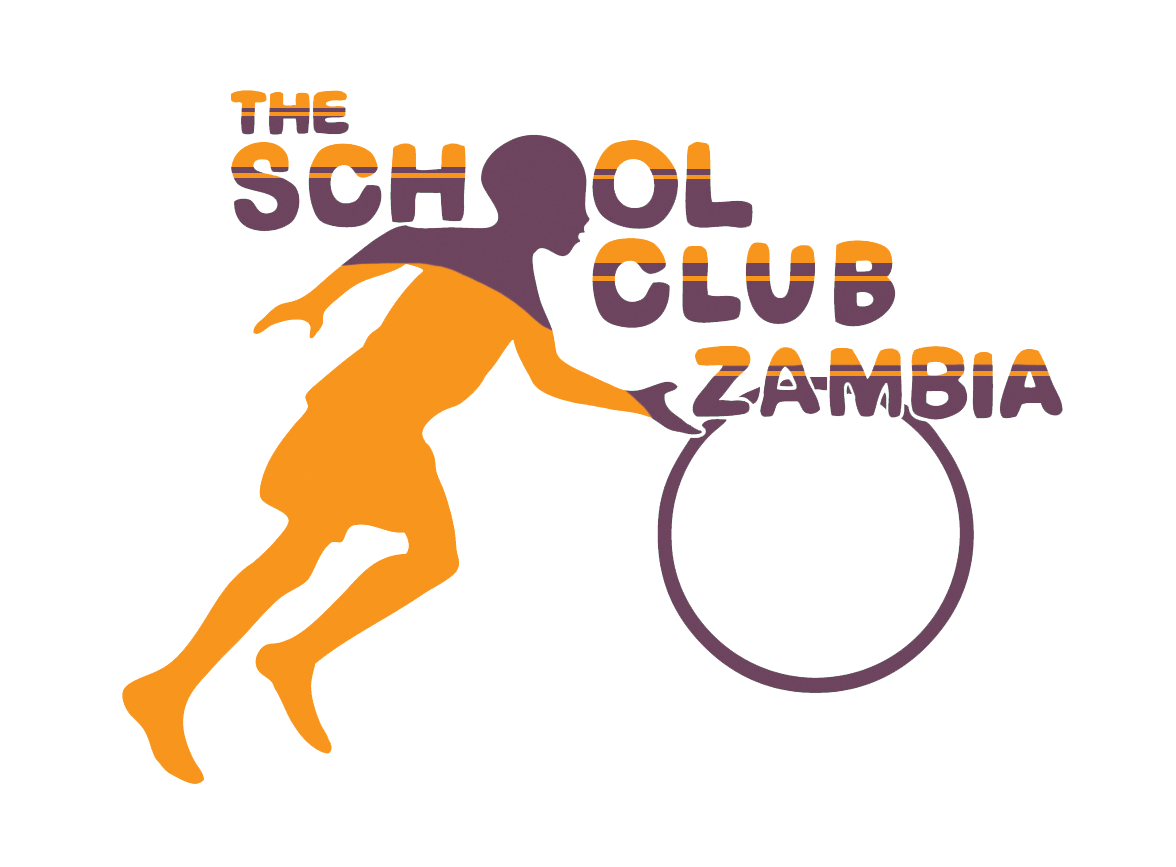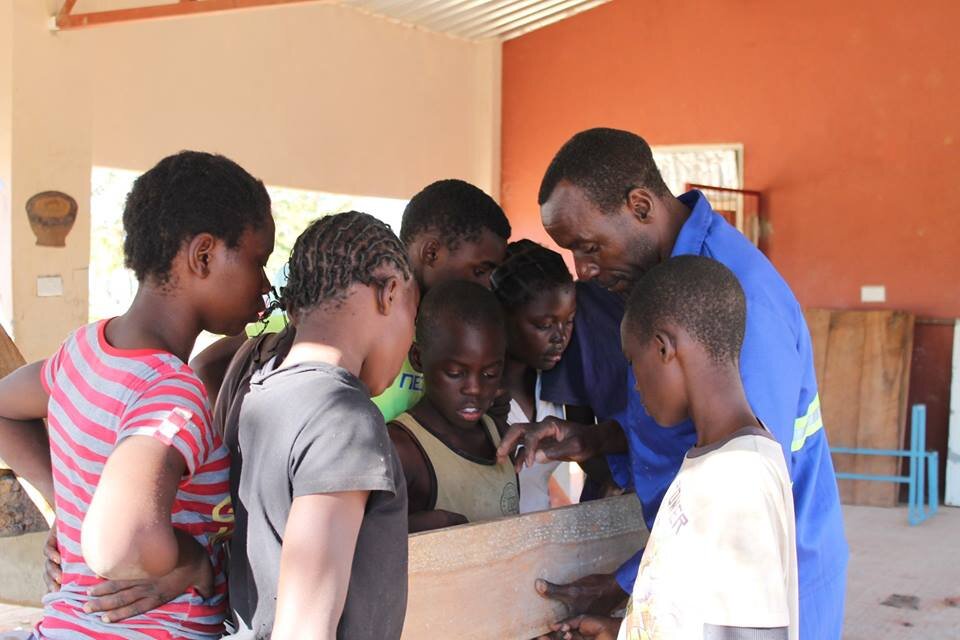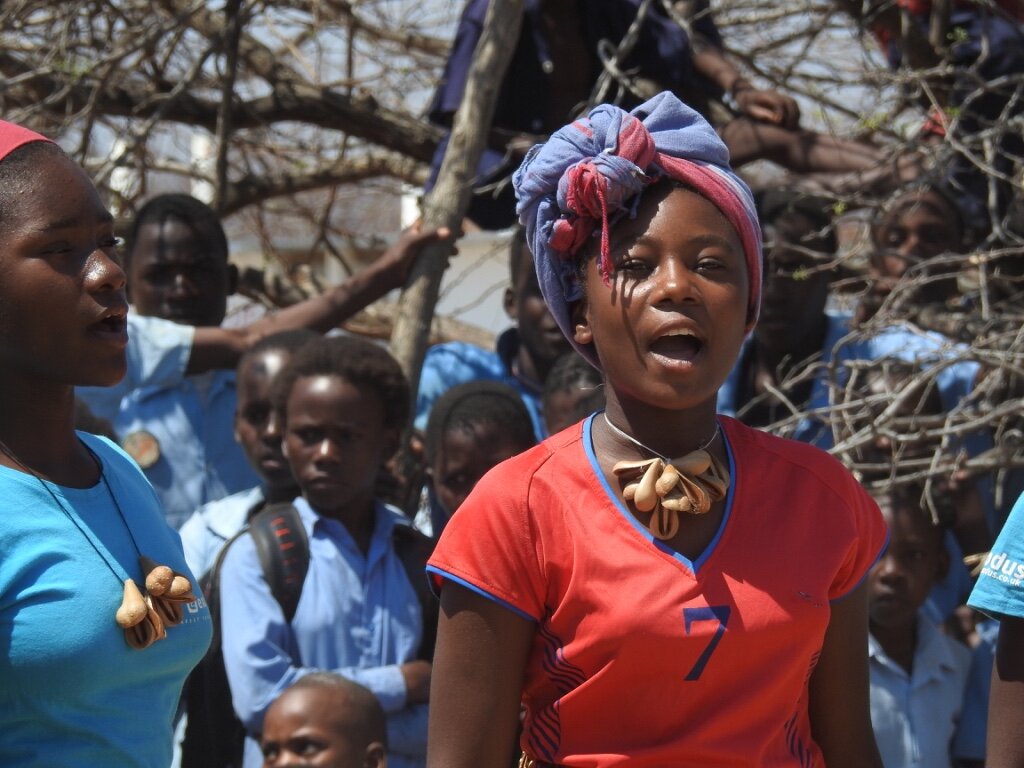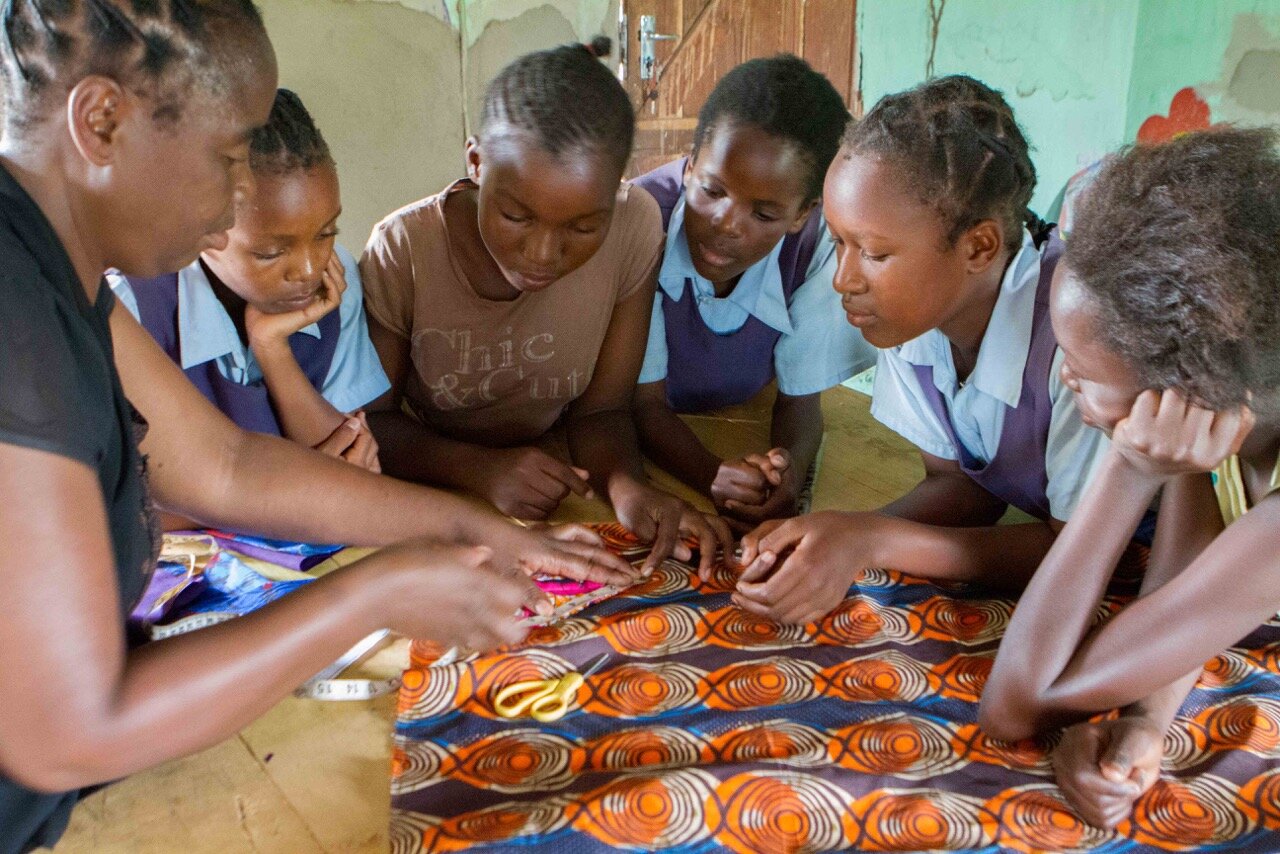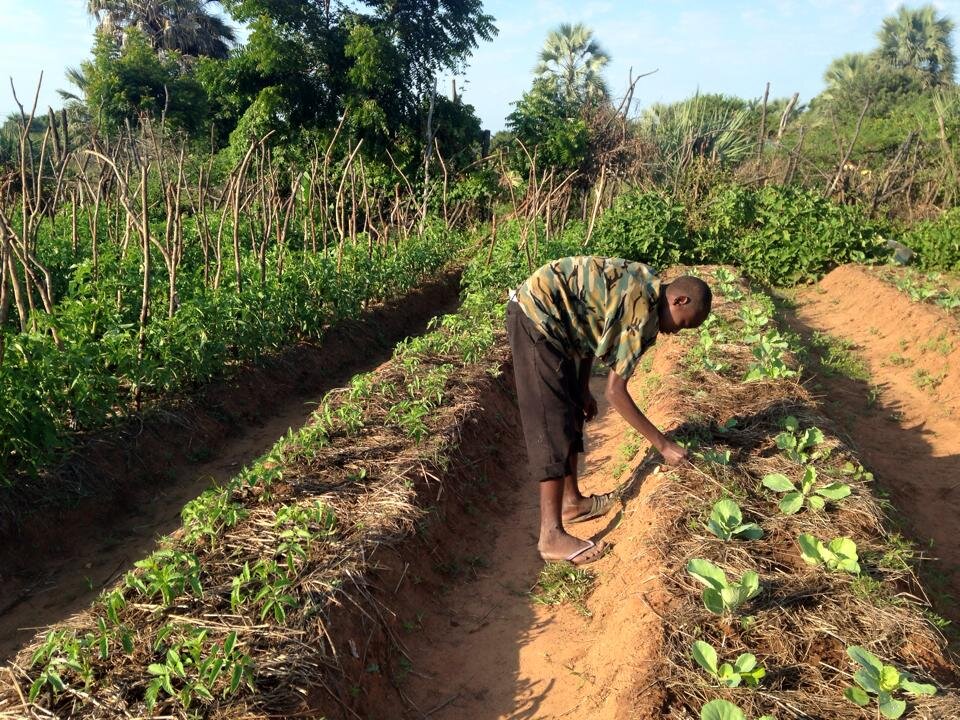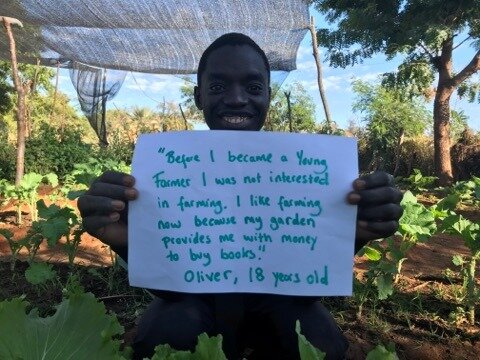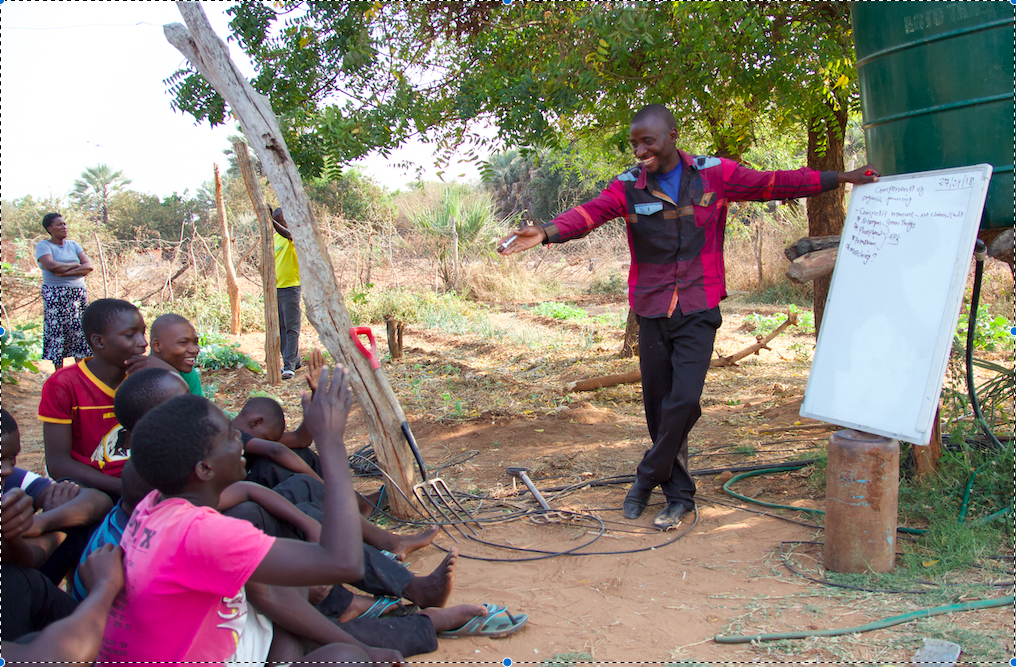School Club Zambia has 3 strategic objectives which underlines all of our work:
1. Increase the quality, relevance and sustainability of education in our targeted schools (SDG 4)
2. Reduce youth unemployment and increase household food security in our targeted communities (SDG 8)
3. Promote gender equality by overcoming the specific barriers that prevent girls from reaching their potential (SDG 5)
In order to practically achieve our strategic objectives we developed our 4 thematic and cross-cutting impact areas of self-financing schools; vocational education; literacy development and girls education.

Self-Financing Schools
Since the early 1990s schools in Zambia have established small income generating activities like chicken projects or gardens to raise extra money for their running costs. However, the most vulnerable schools in the country have always struggled to raise the money to start-up a school business and often lack the technical knowledge to launch and run the businesses successfully. In 2019, the Ministry of Education implemented a new policy that made income generating activities compulsory at all schools in response to the rising costs of essential resources like chalk and paper.
Since 2011 our model has supported schools to launch and sustain a number of diverse businesses to enable the schools to become financially and environmentally sustainable. This often includes establishing clean sources of water at schools (boreholes and water harvesting systems) and providing access to solar power if there is no mains electricity. The businesses are managed by our student-led Enterprise Committees who receive training through SCZ’s Enterprise Committee Training scheme.
Between March 2019 - April 2022 we piloted a new “Agricultural Hubs for Sustainable Schools Project” in partnership with iSchool, the Ministry of Education and the Ministry of Agriculture. This 3 year project aimed to reduce schools long-term overheads through the introduction of innovative e-learning technology and by establishing a school-run agri-business which will improve local farmers access to farming input tools.
In May 2019 our baseline showed that 61% of a sample of 500 families that we interviewed taking part on the project had less than K500 (30 dollars) a month to spend on their household essential items like food, soap and firewood. This could be broken down into 61% of the families living off US 1.07 a day in 2019. Only 13% had more than K800 ($50) a month (or $1.70 a day) and 3% had more than K1500 ($90) a month (or $3.20 a day)
At the end of our Agricultural Hubs for Sustainable Schools Project we had -
-Trained over 1,950 rural farmers in adaptive farming strategies whilst providing them with to access to farming input tools through our school-run agricultural hub shops. This led to a 300% increase in farmers growing maize and a 20% increase in families collecting and storing rainwater.
-Seen a 25% reduction in extreme poverty in our 500 targeted households, whilst 5% of families had risen above the World Bank poverty line for Zambia
Vocational Education
Three quarters of the population in Zambia are employed in agriculture yet of the 42 million hectares of land in the country only 1.5 million hectares is cultivated each year . In reflection of this our model often prioritises starting agriculturally based school businesses so that we can establish vocational education opportunities to improve farming techniques and encourage young people to think about alternative future livelihoods including growing different kinds of crops.
Young Farmers Club
Since 2014 SCZ has trained over 200 students in organic agriculture through our year long training scheme. Students learn the practical elements of organic agriculture in order to enable them to combat some of the immediate effects of climate change (mulching, crop rotation, tree planting, composting, rain water harvesting) alongside learning the business skills to budget, market and grade their crops. We have also supported 10 ex-young farmers to gain professional agricultural qualifications, who have gone on to offer pro-bono support in farming to neighbouring farmers. The Ministry of Agriculture took over the training element of this project in 2022 and now use our school Agricultural Hub Shops at two schools as farmers training centres.
Young Tailors Club
In 2014 SCZ helped Kariba South Primary to establish a Young Tailors Club which has since trained over 140 students. The school won the Top Global Prize in Teach a Man to Fish’s School Enterprise Challenge for this business which also manufactures all of the re-usable sanitary pads for our girls’ education programmes, using only locally sourced and re-cycled materials.
Happy Layers Club
In 2017, our Innovation Ambassadors Sunny and Mabulani launched our first Happy Layers Club at Kariba South School to teach the students how to take care of the schools’ 100 layer chickens. We have since rolled this programme out to Chisyabulungu and Siansowa school and conduct annual exchange visits between the members so that they can continue to learn from one another. This business typically raises K3,000 (£250) profit a term which is 3 times more than the average Government school operates off.
Enterprise Challenge
In August 2019 we launched our first Enterprise Challenge with 4 schools in Sinazongwe district. This 12 month challenge trained 40 students in entrepreneurship during a 1 week start-up bootcamp and thereafter teams from each school competed against each other for the most profitable business idea! Congratulations to the team from Siansowa who won last years challenge with their cupcake business. We look forward to re-starting the challenge again at the end of 2022.
Next Generation Girls
In February 2021 we launched a new 12 month vocational training project for 30 girls that were on the verge of dropping out of school, or who had left school within the last 2 years. Over the course of the year these girls will receive training in IT skills, entrepreneurship, bricklaying, carpentry, tailoring, climate smart technology and cooking. We aim to end this project in January 2022 with all 30 girls back in the education system.
Literacy Development
We believe that literacy must be introduced to children in and outside the classroom at the earliest stage. Since 2016 we have built interactive outside learning spaces at our partner schools alongside providing re-training courses to teachers; e-learning equipment; pre-school classrooms and specialised English as a second language books through Happy Readers in Zimbabwe. We have recorded great improvements in reading levels from 5% to over 60%, but continue to seek new ways of advancing literacy at our partner schools so that all children can leave school with a high quality of education. In November 2021, we launched a new 2-year project in partnership with Gursney Overseas Aid which will build two more pre-school classrooms and trained 10 early year teachers.
Girls Education
Girls are fundamentally more disadvantaged in Zambia, especially in the rural areas of the country like Sinazongwe where School Club Zambia works. The roots of inequality are culturally and economically complex but the statistics show that 31% of young women in Zambia will be married by the time they are 18. In addition to this 28% of girls will have had their first child by the time they are 18 and 77% will never receive a full 12 years of schooling (UNICEF Report, 2018).
There are currently 650 million women around the world who were married under the age of 18 and Zambia is still considers by Girls not Brides to be one of the top 20 hotspots for child marriage in the world. Poverty, deep rooted gender inequality and a lack of education are commonly cited as the leading causes for this, especially in drought years, when marrying off a daughter and having one less mouth to feed around the table can make a huge difference to a family.
Over the last 8 years we have developed a girl-led multi-facetted approach to addressing the key challenges that prevent girls from finishing school and reaching their potential in rural Zambia. This currently includes ensuring that all girls have access to somewhere safe to wash and change at school during their periods; are provided with re-usable sanitary wear which is culturally preferred in rural Zambia, as well as the skills to make their own and teach others; have access to information on sexual reproductive health education, menstrual hygiene management and sexual reproductive health rights; are aware of the services offered by their local rural health clinic and are involved in actively promoting and developing the Ministry of Health’s youth corners at these clinics with other young people in their communities.
In January 2020 we launched a 2-year project “Girls of Sinazongwe: a child-led approach to reducing girl absenteeism in rural Zambian schools” in partnership with the UK Government’s Foreign, Commonwealth & Development Office (FCDO) under UK Aid Direct. This project achieved a 40.4% reduction in the number of days that girls missed school and a 900% increase in use of family planning services at the 6 targeted clinics. We are currently running an innovative sport for change 3-year project in partnership with the Scottish Government and Comic Relief which aims to return 750 girls in Sinazongwe back to school by April 2023.
“Our school now has 5 social enterprises including an agricultural shop, tailoring centre, organic garden, internet cafe and chickens. We have been able to build a store-room, teacher’s house, toilet block and complete a 1x3 classroom block from the profits!
”
““The Young Farmers visit to a commercial farm really opened the children’s eyes to the possibility of farming! Most young people think that farming is only on a small scale and they didn’t realise that many of the richest people in Zambia are also farmers. It really changed the way they see their future rather than just believing that all they can do is fish.””
“We have a huge problem in our community of girls getting pregnant and not finishing school. Often girls will spend the night on the fishing rigs for as little as K5 (50p) or even for a small bowl of fish, not knowing the consequences such actions can have on their future. I am so thankful that SCZ is running workshops to educate our girls on sexually transmitted diseases and sexual reproductive health, so that they (the girls) can start protecting themselves”. ”
